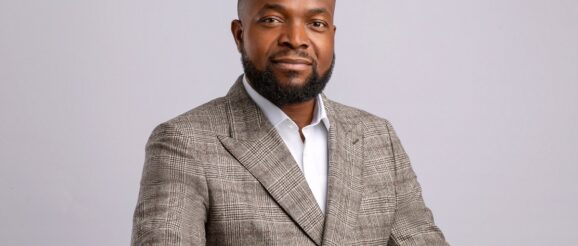JUST IN: CCHub’s Bosun Tijani named Minister of Communications, Innovation and Digital Economy

President Bola Ahmed Tinubu has appointed Bosun Tijani as the Communications, Innovation and Digital Economy minister. Bosun Tijani, who has contributed to the growth of the Nigerian tech ecosystem, particularly through his activities at CCHub, will be expected to deliver the next level of innovation that the ecosystem requires.
The list released by the Presidency earlier today also confirms that Wale Edun would be the Minister of Finance and Coordinating Minister of the Economy. The list also has the former governor of Rivers State, Nyesome Wike, as the Minister of the Federal Capital Territory (FCT), Ishak Salako as Minister of State, Environment and Ecological Management, Minister of Finance and Coordinating Minister of the Economy, Wale Edun.
The list has Bunmi Tunji -Ojo- Minister of Marine and Blue Economy; Minister of Power; Adedayo Adelabu, Minister of State, Health and Social Welfare; Tunji Alausa, Minister of Solid Minerals Development; Dele Alake, Minister of Tourism; Lola Ade-John, Minister of Transportation, Adegboyega Oyetola, Minister of Industry, Trade and Investment, Doris Anite, Minister of Innovation Science and Technology, Uche Nnaji Minister of State, Labour and Employment, Nkiruka Onyejeocha, Minister of Women Affairs, Uju Kennedy.

Former governor of Ebonyi State Dave Umahi is Minister of Works, Minister of Aviation and Aerospace Development; Festus Keyamo, Minister of Youth; Abubakar Momoh, Minister of Humanitarian Affairs and Poverty Alleviation; Betta Edu, Minister of State, Gas Resources, Ekperikpe Ekpo, Minister of State, Petroleum Resources, Heineken Lokpobiri and Minister of Sports Development, John Enoh.
Others are Hannatu Musawa as Minister of Art, Culture and Creative Economy, Mohammed Badaru- Minister of Defence; Bello Mattawale, Minister of State Defense; Minister of State Education; Yusuf Sununu, Minister of Housing and Urban Development; Ahmed Dangiwa, Minister of State Housing and development, Abdullahi Gwarzo, Minister of Budget and National Planning, Atiku Bagudu.
The President also reserved the Minister of Environment and Ecological Management for the Nominee from Kaduna state, who is yet to be announced.
Minister of State, FCT Mairiga Mahmud; Minister of State Water Resources and Sanitation, Bello Goronyo; Minister of Agriculture and Food Security, Abubakar Kyari; Minister of Education Tahir Maman; Minister of Interior, Saidu Alkali; Minister of Foreign Affairs, Yusuf Tuggar, Coordinating Minister of health and social welfare, Ali Pate, Minister of Police Affairs, Ibrahim Geidam.
Minister of State steel development, Maigari Ahmadu; Minister of Steel Development, Shuaibu Audu; Minister of Information and National orientation, Muhammed Idris.
Lateef Fagbemi is Attorney of the Federation and Minister of Justice, Minister of Labor and Employment; Simon Lalong, Minister of State Police Affairs; Imaan Sulaiman- Ibrahim, Minster of Special duties and intergovernmental affairs Zephaniah Jisalo.
While Joseph Utsev is the Minister of Water resources and sanitation, and the Minister of Agriculture and Food Security is Aliyi Sabi Abdullahi.
Special Adviser to the President on Media and Publicity, Ajuri Ngelale, said the retreat for the Ministerial appointees is to hold next week after which they will be sworn- in.

What the tech ecosystem can expect from Bosun Tijani
The Nigerian tech sector is one of the fastest growing in Africa. Currently, the sector is one of the top-performing sectors and a major contributor to Nigeria’s gross domestic product (GDP).
Dr Bosun Tijani believes that the Nigerian technology ecosystem is fast becoming big and currently can attract over $10 billion in funding as long as the conditions are right, When he is sworn in as the minister of Communications, Innovation and Digital Economy, tech enthusiasts can expect that he would do everything within his might to see that this is a reality.
Dr Bosun Tijani disclosed this when he was featured on a television programme to inform the public about Pan African Youth Innovation Forum 2023, with the theme: “Unleashing Africa’s Innovative Future with Bill Gates”. His claim could be considered really ambitious, considering that African tech startups raised a combined $4.8 billion in 2022, across 1,000 deals.
Nigeria’s tech sector and the Startup Act
Speaking on the Startup Act, Bosun Tijani said it shows something is happening in the country’s technology ecosystem. He, however, said there is still the need to create the right policies and regulations to back it up because innovation is expensive and intentional.
According to Bosun Tijani, the normal law of doing business doesn’t support innovation, explaining that innovation is not entrepreneurship, “but innovation cannot be completed without innovation. So, the laws that will drive innovation have to be intentional, which is what the Startup Act is all about”, he said.
“In more advanced countries, they have what is called the National Innovation System, the Startup Act needs to be in this regard to be able to strengthen innovation across the board, where there are vast opportunities not just for startups but for large corporate, micro-businesses, been also able to innovate. This is because when more people innovate, we are going to see more people solve our problems.”
Bosun Tijani
